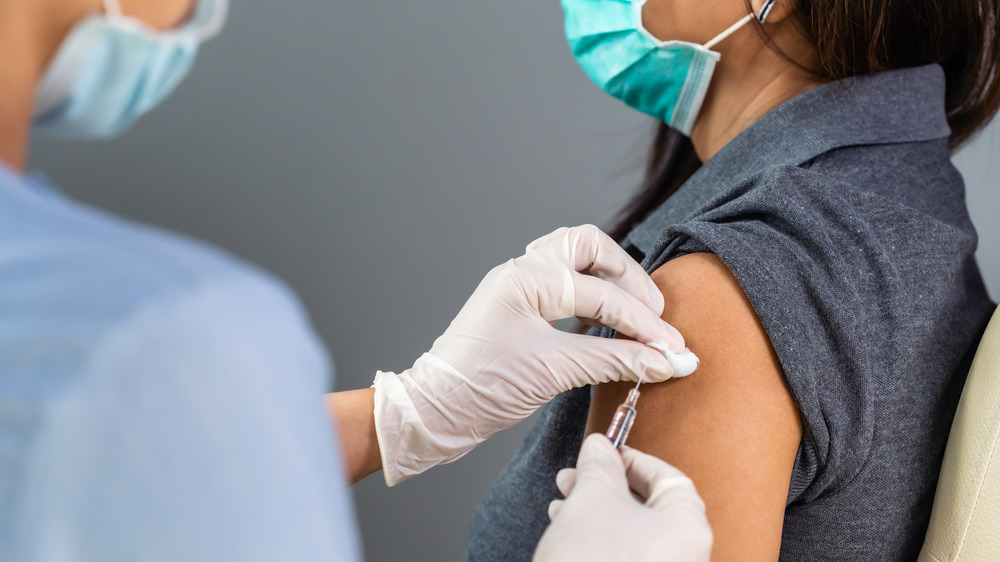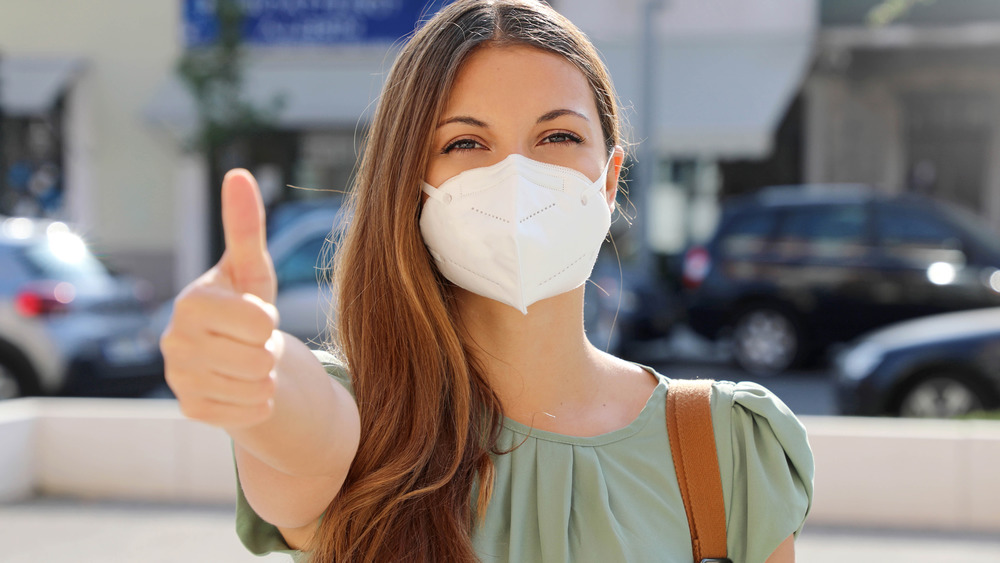The Real Reason You Should Still Wear A Mask After A COVID-19 Vaccine
As vaccines for COVID-19 slowly start to roll out to the general population in the next several months, it might seem like the chance to go out in public without a mask on is close at hand. But the reality is that mask-wearing will likely be part of our daily existence for longer — even once you've been vaccinated, wearing a mask will remain important.
That's because while the Pfizer and Moderna vaccines have been shown to be around 95 percent effective at preventing the COVID-19 virus, there isn't much evidence around the vaccines preventing transmission. That means while a vaccinated person may not become ill with COVID-19, they could still spread it to others. While the vaccine may prevent transmission, the concern is that because the vaccine is delivered intramuscularly, the virus may be able to live on in the nose and throat (via The New York Times).
This is also a good reminder that your mask should always cover your mouth and your nose, the two primary pathways that the virus enters and escapes the body (via the Centers for Disease Control).
Other reasons to wear a mask
"It's really going to be critical for [vaccinated people] to know if they have to keep wearing masks, because they could still be contagious," Michal Tal, an immunologist at Stanford University, told The New York Times. There's a real risk that vaccinated people could still be spreaders and could infect their communities accidentally, and this is especially true if you're one of the earlier people to get a vaccine, while most of the population is still waiting to receive it.
It's also good practice to continue to wear a mask until vaccines are widely available simply out of common courtesy. Because a vaccine isn't something that you can see, it will be impossible to tell who has been vaccinated and who hasn't. So even if people who've gotten the vaccine could safely go unmasked, that will potentially prompt unvaccinated people to stop wearing theirs as well: We tend to follow along with what other people are doing, so as more people stop wearing masks, unvaccinated people may do the same and risk both becoming infected or spreading COVID-19 (via Psychology Today).


